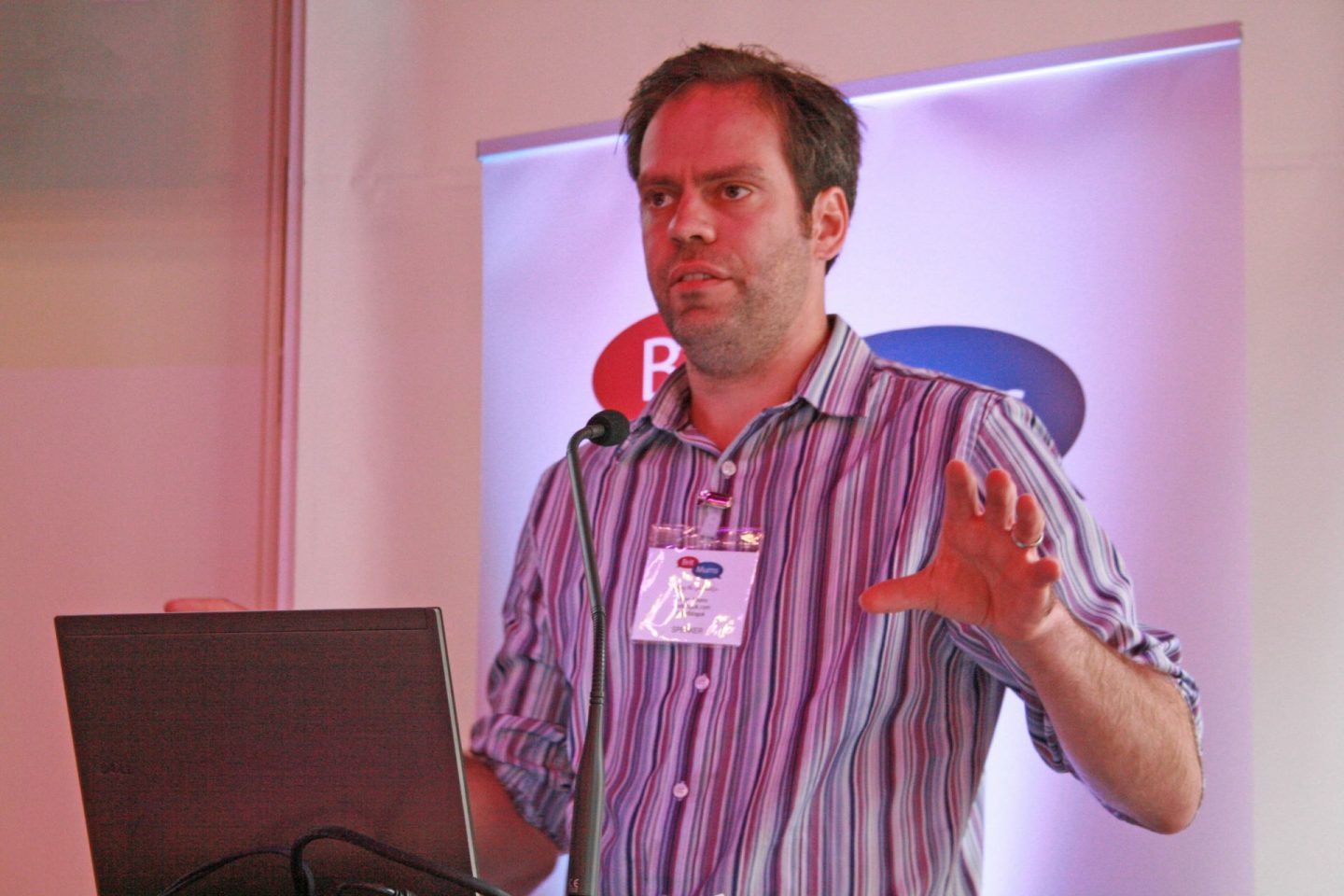I don’t normally write blog posts like this, but I was recently reflecting on changes I’ve seen in the blogging and influencer world. I’ve been writing this blog for eight years and in that time I’ve seen huge change. As it’s the holiday season, I thought it would be interesting, fun even, to write something about how different things are today compared to when I launched Dadbloguk.

During my time as a content creator, social media platforms have come and gone, regulation has increased and we’ve seen the emergence of a professional class of content creator. Other things, however, remain stubbornly similar. Here are a few observations.
Blogger, social media influencer, content creator?
The terminology around content creation has changed so much over the years. When I started Dadbloguk, we were simply “bloggers.” Blogs were the only online platform and you promoted them using social media.
Then YouTube came along and we saw the rise of vloggers, not to mention Instagrammers and podcasters. Realising we needed different terminology, some bright spark came up with the idea we were “influencers.” That, however, wasn’t confusing enough and so we also became “social media influencers” or “content creators.”
I used to refer to myself as a blogger, but that title no longer fits. These days I tend to call myself a content creator. That’s because expectations have changed. If you run a sizeable operation, you must produce video content and know how to use a DSLR camera in addition to posting to various social media channels and produce written content. Blogging only covers some of these activities (Did I mention I recently started a podcast called DadPodUK? No? Well here’s a link to it).
The rise and fall of mighty social media channels
For quite a while, my biggest social media channel in terms of follower numbers was Google+. At one time it accounted for over half of them. Anyone who knows anything about the history of social media will probably be quite surprised by this!
There’s a very simple reason to explain how this came about. When I started Dadbloguk, Google+ was the new kid on the block. Everyone was piling into it in exactly the same way people piled into Instagram a few years ago. I followed the crowd and for some reason, my account became quite popular.
Google+ had its moment and it was great for improving SEO. Sadly, it never quite took off and was unplugged last year.
Vine is another channel that was unplugged, although my use of it was minimal. While everyone thought Snapchat would be the next big thing among content creators, it seems to have carved out a specialist niche for itself as a messaging service.
The big channels, such as Twitter, Facebook, LinkedIn, Pinterest and the mighty Instagram, all remain. It’ll be interesting to be see what happens with TikTok in the years to come.
It’s been fascinating to see how some social media channels have come to prominence while others have fizzled out. On that note, I must check my Friends Reunited page. . .

Regulation, regulation, regulation. . .
When I started blogging, the internet was like the Wild West. Sure, the Advertising Standards Authority (ASA) existed but no one was too fussed by it. It occasionally made noises about doing something to improve the behaviour of influencers, but it was a few years before the #AD revolution took place.
Slapping “This is a collaborative post” at the bottom of an article, sometimes in a tiny font, was widely accepted as an acceptable way of disclosing commercial content back in 2013. I occasionally see people doing this today and I won’t mince my words, anyone who does this in 2020 looks like an amateur. As the marketing industry invested more money on working with creatives, increased regulation became inevitable.
Of course, increased regulation of commercial content is just one change. Data protection laws have been updated and must be adhered to. Most influencers should be registered with the Information Commissioner’s Office (Although I often wonder how many actually are).
The internet is no longer the Wild West, but lack of awareness around regulation is still a big problem. At the moment our industry regulates itself. Once the COVID-19 crisis has passed, it’ll be interesting to see if the Government passes legislation forcing compliance on what has become a huge industry that companies invest vast amounts of money in.
The emergence of a professional class of content creator
Slowly but surely, content creation has become an occupation in its own right. As a former journalist who fell into content creation by accident, it’s been fascinating to watch as this has happened. As regulation has increased, the number of people who work as social media influencers also seems to have gone north.
It makes sense the two would be related. After all, does someone blogging and Instagramming for fun really want to have all the hassle of dealing with the ASA, the Information Commissioner’s Office etc?
That said, those who blog for fun often produce the most creative content. They do, after all, have a freer hand with no commercial considerations and fewer regulations to comply with.
The Branded Content Marketing Association as a trade body?
Following on from the above, the solitary, primarily online nature of content creation means interest in forming a trade body has always been lukewarm. I wish more of my content creating colleagues would appreciate the benefits of being represented by a trade body.
Some people are very open to the idea, but I have seen fierce resistance to the proposal. Without a trade body, we have no one to speak for us at Government level, no one to deal with trade disputes and no one to create a career path or provide recognised training and qualifications. This, in turn, creates a problem as all manner of people sell highly dubious training courses to influencers.
The one institution that has bubbled to the surface that wants to achieve all these things is the Branded Content Marketing Association (Declaration of interest: I’m a member of its influencer council). I hope in the years to come the BCMA’s membership and influence grows. It’s desperately needed and I am glad to see it’s on the scene.
The end of bloggers’ conferences?
Anyone reading this who has been on the scene a while may remember the annual BritMums Live conference, a must attend event for those who wrote a parenting blog. Every year I attended and came back with a wealth of information I put to good use when producing content for Dadbloguk.
I even found myself being given a (…very small) speaking role at BritMums Live in 2013. I had only been blogging for eight months so was amazed to have been asked! I remember standing up in front of the audience and making grandiose statements about the state of the blogging world and the differences between mum and dad bloggers.
Half of me is dreadfully embarrassed about what I said because I was so inexperienced. Half of me, however, looks back on that occasion and thinks it was brilliant!
The truth is, back then blogging was such a new thing we were all learning and making everything up as we went along. What I said back then might seem wrong and misguided now, but in 2013 there was no right or wrong. Blogging was anarchic and there were no rules.
At the end of every BritMums Live conference there was always a public dispute on social media about the men in attendance. Some men said they didn’t feel welcome while a tiny number of mums didn’t want them there. It was as predictable as the sun rising and setting. We were always small in number (single figures compared to the hundreds of mum bloggers), but I personally never felt anything but welcome, very welcome in fact.
The BlogOn conference is also great fun. I have only attended the one but found it a great way to meet with peers, exchange ideas and have fun. When this COVID nonsense is through, I hope to attend again.
Borderless Live is another, although I haven’t made it to one of these yet. I just wonder what the future holds for these events post COVID-19?
Working as a social media influencer is a lonely business. These events have always been a great way to meet other people from the same industry and I have made a number of real-life friends as a result. I hope we will see them come back and allow us to meet in some form, even if we must all be socially distanced.
What do you think of changes to the blogging world?
Have you been on the blogging scene for a while? If so, what changes have you seen. We all have different perceptions and I’d love to know what changes you’ve seen over the years.







2 thoughts on “Reflecting on my years as a blogger and content creator”
A very interesting read John, I have been around a while now and yes their have been many changes.
Some brands now see social media influencers as their best form of advertising and others want to still use the blogging world. I have found that it’s almost impossible to do it all, so I always concentrate on my blog as that still produces the best revenue for me.
Social media channels come and go and what is popular today may well not be popular tomorrow, but the blog in my opinion will always be there. Good luck with your new podcast.
Oh I’ve wanted to do a podcast for ages Nigel! I just hope it takes off. As for social media channels, I think you’re right. They come and go but many newbies don’t appreciate this and try and do everything. When I put that post together I was quite surprised at how much things have changed. They’ve changed a huge amount and that is partly, as you say, because marketeers are shifting away from advertising with big media organisations and going with people liek you and I. that, in turn, has an impact on regulation as they want to know their investment is safe.